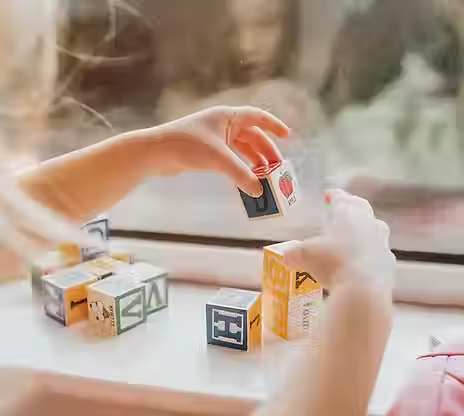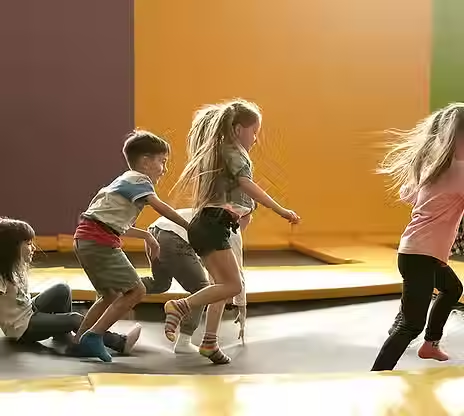
Helping kids thrive by

putting the fun in OT fun-damentals

Fine Motor Skills
Fine motor skills involve the coordination of small muscles in the hands and fingers to perform precise movements. These skills are essential for tasks requiring dexterity, control, and hand-eye coordination.
Occupations that use fine motor skills include:
-
Self-care tasks: Zipping, buttoning, tying shoelaces, brushing teeth, using utensils
-
School-related activities: Writing, cutting with scissors, using a ruler
-
Work and hobbies: Typing, playing musical instruments, painting
Gross Motor Skills
Gross motor skills involve the coordination of large muscle groups to perform movements that require strength, balance, and coordination. These skills are essential for mobility, posture, and overall physical activity.
Occupations that use gross motor skills include:
-
Self-care tasks: Walking, getting dressed, climbing stairs
-
Play and recreation: Running, jumping, throwing/catching a ball, riding a bike
-
Work and daily tasks: Lifting, pushing/pulling, carrying groceries or books, keeping upright posture at desk
-
Sports and exercise: Swimming, dancing, yoga, team sports


Emotional Regulation
Emotional regulation skills involve the ability to recognize, understand, and manage emotions in a healthy way. These skills help individuals respond appropriately to different situations, control impulses, and cope with stress.
Occupations that use emotional regulation skills include:
-
Self-care and relationships: Managing frustration, expressing emotions appropriately, handling conflict
-
School and work: Coping with stress, staying focused, adapting to challenges, building self-esteem
-
Daily activities: Dealing with disappointment, problem-solving, adapting to changes in routine
-
Social interactions: Taking turns, showing empathy, resolving disagreements
Executive Functioning Skills
Executive functioning skills are cognitive processes that help with planning, organization, problem-solving, and self-control. These skills enable individuals to manage daily tasks, set goals, and adapt to changing situations.
Occupations that use executive functioning skills include:
-
Self-care and daily routines: Following a daily routine, managing time, remembering appointments
-
School and work: Organizing materials, prioritizing tasks, completing assignments on time
-
Social interactions: Taking turns in conversation, understanding social cues, managing emotions in conflicts
-
Problem-solving and decision-making: Adapting to changes, making plans, troubleshooting issues


Sensory Processing Skills
Sensory processing refers to the way the brain receives, interprets, and responds to sensory information from the environment and the body. This includes input from the five senses (sight, sound, touch, taste, and smell), as well as proprioception (body awareness), vestibular (balance and movement), and interoception (internal body signals).
Occupations / life skills affected by sensory processing challenges:
-
Self-Care Tasks (dressing, brushing teeth, bathing)
-
Eating a well-balanced diet
-
Fine and Gross Motor Skills (handwriting, catching a ball, riding a bike)
-
Social Participation (handling crowded or noisy environments, engaging in play)
-
Attention and Learning (staying focused in class, following instructions)
-
Emotional Regulation (managing frustration, anxiety, or meltdowns in response to sensory input)
